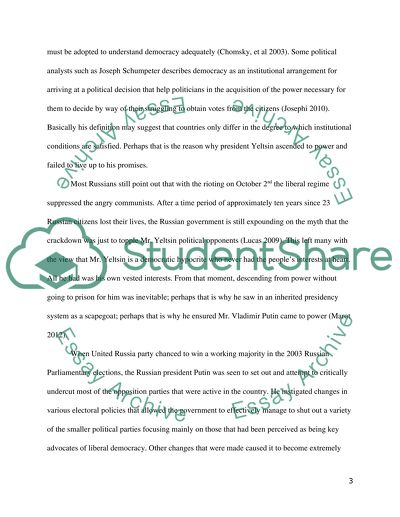Cite this document
(“Politica Science - society and state in contemporary russia Essay”, n.d.)
Retrieved from https://studentshare.org/history/1461001-politica-science-society-and-state-in-contemporary
Retrieved from https://studentshare.org/history/1461001-politica-science-society-and-state-in-contemporary
(Politica Science - Society and State in Contemporary Russia Essay)
https://studentshare.org/history/1461001-politica-science-society-and-state-in-contemporary.
https://studentshare.org/history/1461001-politica-science-society-and-state-in-contemporary.
“Politica Science - Society and State in Contemporary Russia Essay”, n.d. https://studentshare.org/history/1461001-politica-science-society-and-state-in-contemporary.


